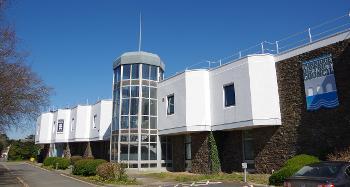Councillors agree £5 / 2.9% Council Tax rise for Average Band D Property to offset ongoing Grant Reduction from Central Government

Torridge Councillors met at Full Council this week to agree and set Council Tax levels for the financial year 2022/23 against the backdrop of a continuing decline in grant funding from Central Government. The presentation and debate highlighted the Councils increasing dependency on the income it generates via Council Tax, Fees and Charges and retained Business Rates, to fund key frontline support services. However the reality remains that the vast majority of Council Tax that Torridge is responsible for collecting is actually on behalf of others. For every one pound collected 73p is passed to Devon County Council, 12p to the Police, 4p to the Fire Service and 3p to Town and Parish Councils - this only leaves around 8p in the pound which is retained by Torridge to fund the many services it provides across the district. Central Government when allocating its funding to Councils assumes Councils will raise their Council Tax each year up to their referendum limit (£5 per Band D equivalent or 2.9% for Torridge).
Councillors also heard that the grant settlement for Torridge has only allocated the Council an increase of 1.1% in its Core Spending Power (CSP) and with inflation already reaching 5.5% this represents a real term decrease in its CSP. The average increase for all shire districts across England was 4.3% so Torridge's figure of just 1.1% is significantly below this. Councillors have made representation on this matter through the districts MP Sir Geoffrey Cox. In what remains a challenging environment post covid-19, emerging pressures on Council spending also includes the increased funding required for leisure service provision from April 2022 when the newly formed Active Torridge organisation take over from 1610. The Council is anticipating providing significant financial support to Leisure in a post pandemic environment. Leisure income is not expected to return to pre-pandemic levels until 2024-25, but even when this occurs the Council is projecting the provision of annual support to leisure services of £450k per annum.
In further debate Councillors voted to support a revised five year £30M capital spend programme, which includes ongoing building and infrastructure maintenance as well as asset renewals and replacements. Inflation has had a significant impact upon the Councils finances generally and costs of the Council's capital program have increased by £1m as a result of construction price inflation. Cost pressures here include a rise of nearly 17% in the cost of building materials as well as a 9% rise in general building costs.
Councillor Ken James - Leader of Torridge District Council said:
"To a large extent there is little room for manoeuvre in the setting of Council Tax each year as 92% of what people pay is dictated by the levels set by Devon County Council and other authorities and organisations. Central Government also assumes that Councils will have maximised their Council Tax Income in line with referendum limits. If we did not do this there would be a financial shortfall, which would affect our ability to fund important front line services that many of our residents depend on.
Even the maximum allowed increase for Torridge of £5 or 2.9% without the need for a referendum is below current inflation levels of over 5% so we will still have to find other savings or increase other returns to achieve an equilibrium. Until the Government comes up with a more generous funding formula for rural Councils, where the costs of providing services are often higher than in cities, we will reluctantly need to continue to follow a similar path in the future to avoid the Council falling into deficit. Finding the most efficient way to deliver services will also continue to be another key area that officers and Councillors will be focusing on"




